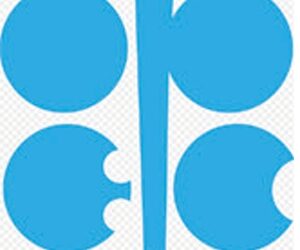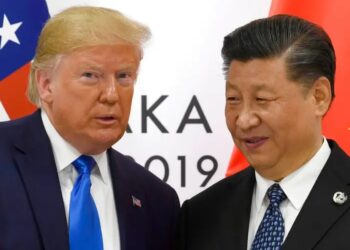from 14% in 2008 – registering in the highest range worldwide. Classifying the respondents as “thriving”, “struggling” or “suffering”, the poll found 55% of Iranians to be “struggling” and only 20% “thriving.” Unemployment at 15% and underemployment at more than 35% has been found to be the main causes. Although obviously not accusing the welfare reform of being the culprit, the poll seems to indicate that the latter has not been of much help.
Countering the finance minister’s claim that 80% of the population has become better off since the reform, a former member of the National Council on Money and Credit told the ILNA news agency in late December 2011 that the “working class” has so far lost 50% of its purchasing power due to inflation and that monthly cash payments could compensate for the higher costs of only water and power for working families – with the result that they became worse off after the subsidies’ reform. According to a confirmed report, some 1.6 million households have failed to pay their monthly gas bills.
Similar sentiments seem to have been felt by the business community as well. In a poll regarding the climate for trade and business in Iran involving nearly 250 enterprises in the country’s 31 ostans (provinces) conducted in the spring of 2011, more than 65% of participants reported that the subsidies’ reform had raised their production costs much or very much; and 79% complained that their higher output costs had not been made up by the government. Only 9% reported that their higher expenses had been partially offset by the state. According to the president of the Tehran Chamber of Commerce, a large number of industrial enterprises are now operating at no more than 30% of their capacity due to higher, non-compensated, energy costs. A former Islamic Republic finance minister also claims that the reform has resulted in recession, further unemployment and higher prices.
Claiming that 70% of subsidies still remain in place, President Ahmadi-nejad told the press corps in early January 2012 that the second phase of the program would start before the end of the Iranian year on March 20. Responding to widespread complaints by the Chamber of Commerce and Industry, and many Majlis deputies, regarding the neglect of the production sector, government officials further promised to remedy the situation through direct financial assistance, low-cost loans and price rise allowances.
According to a statement in late December 2011 by the secretary general of the Reform Headquarters, some 3 million households comprising 10 million well-to-do individuals in the top 20% of the population – those with monthly incomes 10-to-20 times the current monthly cash receipts (i.e., individuals earning $445-$890 a month) – shall be excluded in the second phase. Wealthy families would first be asked to forego monthly cash receipts voluntarily so that the rest could get more. And if they did not, “more precise methods” would be employed, according to the head of the Subsidies Reform Organization.
However, the start of the new phase seems fraught with untold problems. To begin with, due to a steady rise in consumer prices, wide gyrations in the foreign exchange market, and mounting bank loan defaults, the head of the Chamber of Commerce and Industry, the chief of the Supreme Audit Court, the mayor of Tehran and others believe that the second phase should be postponed. Furthermore, the change in the roster of the recipients would seem to be neither easy nor lawful. Given the fact that after months of studies and preparations in early 2010, the government was still unable to differentiate among income recipients – and thus decided to include everyone on the roster – it is not certain that a universally satisfactory formula could easily be found this time. Finally, since depriving anyone of the bounty is a violation of the original statute, the new decision requires an amendment, or a new law, as the Majlis speaker has already indicated.
Interestingly enough, eliminating the richest 10 million individuals from the dole would probably save no more than $5 billion a year. And, even if this entire amount were to be distributed among the rest of the recipients, it could still not preserve the original value of welfare receipts set in December 2010 – since the economy has experienced more than 20% inflation in the meantime.
A year after the passage of long-awaited and positive economic reform legislation, the initial intent of the new law can hardly be recognized. The original intents were: (1) to rationalize hydrocarbon consumption through “opportunity cost” pricing; (2) enhance output efficiency through the adoption of new technologies; and (3) reduce income inequalities (caused by unfair distribution of price subsidies) through the establishment of a safety net for the poor.
Now, while energy and other subsidized prices have been raised toward their real opportunity costs, there seems to have been no commensurate pressure on the households to alter their consumption pattern. Reported reductions in major items (e.g., gasoline, and natural gas), even if true, do not meet earlier rosy expectations. Nor has there been sufficient inducement for producers to make credible attempts to renovate old and inefficient equipment. Instead, heavy energy using enterprises, in both the private and public sectors, have clamored to obtain special input quotas, direct cash assistance, zero interest loans, and other government aid. And, instead of establishing a safety net for the poor, the old and unfair across-the-board price subsidy program has been simply turned into new and addictive cash grants to everyone. In short, a fundamentally rational economic initiative has been turned into an ad hoc political and populist venture – with less economic rationality, and far more political hazards.
In many analysts’ view, the major responsibility for this metamorphosis lies with Ahmadi-nejad’s own changed position. Between the announcement of the “Great Economic Surgery” in 2008 and his televised address in 2010 announcing the start of the subsidies’ reform, the president persistently talked about allocating part of the new revenues for investment in development projects. Abandoning this clearly rational position, however, on one of his country tours in late December 2011, while defending his much criticized uniform monthly cash-back policy, he said “in two to three further steps, all subsidies will be returned to people in cash.” And by further stating that people would soon find their “due share” in “their own pockets,” he introduced a novel (and a highly pernicious) idea that welfare cash payments were actually an inherent individual “right.” More puzzling still, when he was told about the producers’ complaint of being left out of the public assistance, he said “cash payments to individuals are the same as aid to producers” – with no further explanation as to the connection.
The president’s maverick and pernicious concept of the people’s entitlement to the whole proceeds of the reform is opposed by the Majlis because: (1) it is contrary to the spirit of the law, i.e., establishment of only a safety net; (2) it imposes a heavy fiscal burden on the treasury, while depriving industry and agriculture from receiving their prescribed shares; and (3) it clearly violates Article 7 of the original statute requiring payments to families commensurate with their incomes.
Interestingly enough, even the government’s top economic advisor, and one of the primary designers of the Subsidies Reform Program, has now come to the same conclusion that cash payments to individuals are not the proper way of dealing with subsidy reform. Echoing the alternative measures suggested to deal with basic causes of poverty and income inequality, he now advocates the replacement of the monthly welfare checks by the establishment of an effective social security system, enactment of a fair and balanced tax code, and promotion of new technologies through accelerated depreciation.
Due to these lingering circumstances, the future shape of the program can in no way be predicted at this juncture. And, with escalating disputes between President Ahmadi-nejad and the Majlis – on top of other grave national preoccupations (e.g., biting sanctions, wild exchange rate gyrations, the pending budget for next year, saber-rattling over the Strait of Hormuz, and the looming Majlis elections in March) – the shape of the second phase, if not the fate of the whole subsidy reform, appears now to be in limbo. While the program’s immediate termination would be politically explosive, and thus is not in sight, a continuation of the status quo seems highly doubtful.
———
Dr Amuzegar is a Washington-based economist and former member of the Executive Board of the International Monetary Fund.
This is the third and final installment
by Jahangir Amuzegar























